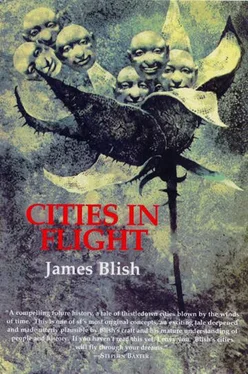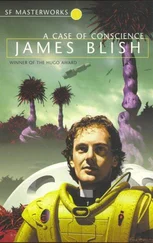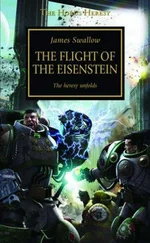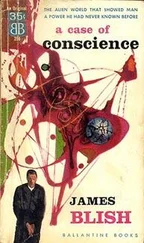James Blish - Cities in Flight
Здесь есть возможность читать онлайн «James Blish - Cities in Flight» весь текст электронной книги совершенно бесплатно (целиком полную версию без сокращений). В некоторых случаях можно слушать аудио, скачать через торрент в формате fb2 и присутствует краткое содержание. Жанр: Фантастика и фэнтези, на английском языке. Описание произведения, (предисловие) а так же отзывы посетителей доступны на портале библиотеки ЛибКат.
- Название:Cities in Flight
- Автор:
- Жанр:
- Год:неизвестен
- ISBN:нет данных
- Рейтинг книги:4 / 5. Голосов: 1
-
Избранное:Добавить в избранное
- Отзывы:
-
Ваша оценка:
- 80
- 1
- 2
- 3
- 4
- 5
Cities in Flight: краткое содержание, описание и аннотация
Предлагаем к чтению аннотацию, описание, краткое содержание или предисловие (зависит от того, что написал сам автор книги «Cities in Flight»). Если вы не нашли необходимую информацию о книге — напишите в комментариях, мы постараемся отыскать её.
Cities in Flight — читать онлайн бесплатно полную книгу (весь текст) целиком
Ниже представлен текст книги, разбитый по страницам. Система сохранения места последней прочитанной страницы, позволяет с удобством читать онлайн бесплатно книгу «Cities in Flight», без необходимости каждый раз заново искать на чём Вы остановились. Поставьте закладку, и сможете в любой момент перейти на страницу, на которой закончили чтение.
Интервал:
Закладка:
“Yes, I know what he means, Estelle. But I hope you never do.”
CHAPTER SIX: Object 4001-Alephnull
NOR DID Estelle ever know—though in the long run she was in no doubt about it in her own mind—that the first break in the problem of how to cross the information-barrier of the coming Ginnangu-Gap sprang from her suggestion to her father that to know No-Man’s-Land, one must study it with bullets. Web and Estelle were, after all, only children, and in the ensuing years nobody had any time to spare for children; they were far too gone in the fever of putting together the immaterial object which would be their bullet across No-Man’s-Land into the vast, complementary, opposite infinity of the universe of anti-matter. For the time being, speculation had been abandoned in favor of fact-finding; what was needed was some direct assessment of the contemporary energy level of the anti-matter universe; once that was known, one could hope to date precisely the coming moment of catastrophe, and know how much or how little time one had left to make such preparations for going down into death as one could bring oneself to think meaningful in the face of an imminent and complete cancellation of all meaning—and of the time of experience which alone gave meaning to the concept of meaning.
Nobody had any time for children; and so they grew up ignored, the last children that the universe would ever see. It was not surprising that they clung to each other; they would have done so even under other circumstances, for there was no question but that the fates which brood in the sub-microscopic coils and toils of the nucleic acids of heredity had formed them for each other.
Estelle sprouted in her world of oblivious adults, and took her place among them, without their noticing what she had become: tall, willowy, grey-eyed, black-haired, white-skinned, serene-faced and beautiful. These oldsters were as immune to beauty as they were immune to youth; they were perfectly happy to have the use of the sharp cutting edge of Estelle’s gift for mathematics brought to bear upon their problems, but they did not see that she was also beautiful and would not have cared had they been able to see it. These days they saw nothing but death—or thought they saw it; Estelle was not so sure that they saw it as clearly as she did, for they had lived in contempt of it far too long.
Web did not know whether this suited him or not. He was moderately content to be the only one on New Earth with the good sense to see that Estelle was beautiful, but sometimes his pride felt the lack of an occasional glance of frank envy; and sometimes he suspected that Estelle cared as little about this in the long run as everyone else on New Earth but Web himself. In the fullness of time, the love which existed between them had been spoken and acknowledged, and they were now a couple, with all the delights and the responsibilities which coupling provides and demands; but somehow, nobody had noticed. The oldsters were too busy building their artifact to notice, let alone care much one way or the other, that a small green weed of love had pushed itself up amid the tumbled stones of the last of all debacles.
Yet it was not difficult for Web to understand why what was for him a miracle was not even a nuisance to the busy godlings and their machines with whom he had to live. There was not much time left; hardly a hiccup for Amalfi and Miramon and Schloss and Dee and even for Carrel, who seemed to be a perpetually young man yet who had lived lifetimes and lifetimes and could be cut down in the midst of his latest without any valid claim that his death would be a grievous waste of whatever (and Web was convinced that it was rather scanty) he carried in his head. What little time remained would be nothing to those people, who had lived so long already; but for Web and Estelle, it had been and would continue to be their growing-up time, which would be half of each of their lives no matter how long they lived thereafter.
Certainly Amalfi never noticed them. He had long forgotten that he had ever been anything less than what he was: an immortal. Probably—now—the suggestion that he had once been a child would have baffled him entirely; in the abstract it was a truism, and he would be unable to think back far enough to think of it otherwise. Once given the administration of Doom, in any event, he prosecuted it single-mindedly, like any other job, leading toward any other destination; if he knew that there would be no other jobs and no other destinations after these, it did not seem to bother him. He was up and doing; that was enough.
In the meantime:
“I love you,” Web said.
“I love you.”
Around them the potsherds did not even give back an echo.
Amalfi had an excuse, had someone suggested to him that he needed one: the building of the missile had gone badly from the moment—triggered by Estelle, though he did not remember this—they had decided to give it priority. At the outset it had looked so much simpler than trying to settle all the theoretical questions a priori, and it had had the immediate appeal of action; but it is impossible to design an experiment without certain fundamental assumptions as to what the experiment is intended to test; which assumptions turned out to be largely absent in the supposedly practical matter of designing the anti-matter missile.
As it eventually worked out, the inter-universal messenger had to be constructed from the sub-microscopic level on up out of fundamental nuclear particles which came as close to being nothing at all as either universe would ever be likely to provide: zero-spin particles with various charges and masses, and neutrino/anti-neutrino pairs. Even detecting that the object was present at all after it had been built was an almost impossible task, for neutrinos and antineutrinos have no mass and no charge, consisting instead partly of spin, partly of energy of translation; it did no good to try to visualize such particles since like all the fundamental particles they were entirely outside of experience in the macroscopic world. Matter was so completely transparent to them that stopping an average neutrino in flight would require a lead barrier fifty light years thick.
Only the fact that the spindizzies exercised a firm control over the rotation and the magnetic moment of any given atomic particle—hence their nickname—made it possible to assemble the object at all, and to detect and direct it after it was finished. As assembled, the messenger was a stable, electrically neutral, massless plasmoid, a sort of gravitational equivalent of ball lightning; it was derived theoretically, as Jake had proposed, from the Schiff theory of gravitation, which had been advanced as long ago as 1958 but had later been abandoned for its failure to satisfy three of the six fundamental tests which the then-established theory—general relativity—seemed to satisfy very well.
“Which from our point of view is a positive advantage,” Jake had argued. “The objections from general relativity are one with the dodo anyhow, and in our special case an object which would be Lorenz-invariant, as a Schiff object couldn’t be, would be a drawback. Another thing; one of the tests the Schiff theory did pass was that of explaining the red shift in the spectra of distant galaxies; which we now know to have been a clock effect and not a fair test of a gravitational theory at all. We’d be better off reevaluating the whole scholium in the light of our present knowledge.”
The result was now before them all in the midst of the Okie city’s ancient reception room in City Hall, which had once been Amalfi’s communications center for complex diplomatic relations with client planets; it had been fitted out with an electronic network of considerable complexity so that multiple negotiations could be carried on at once while the city approached a highly developed, highly civilized star system; now that net had become, instead, a telemetering system for the inter-universal messenger.
Читать дальшеИнтервал:
Закладка:
Похожие книги на «Cities in Flight»
Представляем Вашему вниманию похожие книги на «Cities in Flight» списком для выбора. Мы отобрали схожую по названию и смыслу литературу в надежде предоставить читателям больше вариантов отыскать новые, интересные, ещё непрочитанные произведения.
Обсуждение, отзывы о книге «Cities in Flight» и просто собственные мнения читателей. Оставьте ваши комментарии, напишите, что Вы думаете о произведении, его смысле или главных героях. Укажите что конкретно понравилось, а что нет, и почему Вы так считаете.












